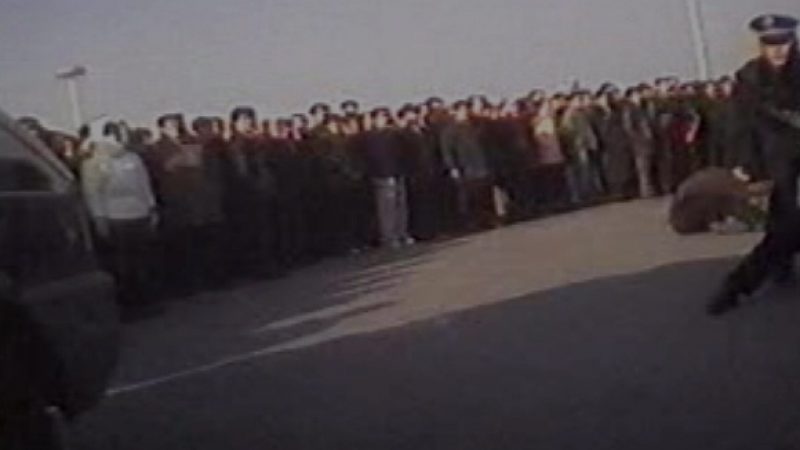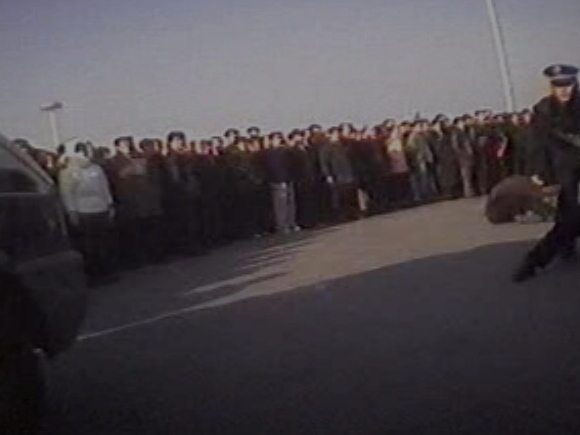
China: Starvation Used as Torture in a Chinese Prison

Heilongjiang Province has acquired a reputation as one of the deadliest provinces in China for Falun Gong practitioners. In 1999, the Chinese Communist Party launched a brutal crackdown on the spiritual practice. Since then, the Falun Dafa Information Center, the official source for info on Falun Gong, has reported that more than three thousand Falun Gong practitioners have been killed as a result of police or prison abuse. Over four hundred of those killed were in Heilongjiang.
This week, the Falun Dafa Information Center reported that wardens at Heilongjiang’s Daqing prison are preventing sixty-five Falun Gong practitioners detained there from eating. The Center says a newly promoted deputy prison warden gave an order to all prison departments. It states that Falun Gong practitioners are not allowed to enter the dining hall or receive food from others—and they’re using this as a form of torture.
[Zhang Erping, Falun Dafa Information Center]:
“Well it is very dangerous, it’s very urgent, because Li Weilong, the deputy warden of the prison, has issued this order since the middle of July.”
Now is not the first time this kind of torture has been used. This photo was released earlier this year.
[Zhang Erping, Falun Dafa Information Center]
“Mr. Zhu Hongbin, who is already confirmed to have died of torture and starvation on June 18, 2009, [is] from this Daqing prison. So we hope that there will be urgent attention from the international community to stop this brutality against the people there.”
In addition to starvation, the Information Center also documented that Daqing prison guards are using force-feeding with salt and other substances as another form of torture.
 (NTDTV)
(NTDTV)


![[Live] FDP-Wahlkampfauftakt mit Parteichef Lindner in Potsdam](https://images-de.epochtimes.de/uploads/2025/01/Thumb-FDP-Live-Potsdam-400x225.jpg)
























vielen Dank, dass Sie unseren Kommentar-Bereich nutzen.
Bitte verzichten Sie auf Unterstellungen, Schimpfworte, aggressive Formulierungen und Werbe-Links. Solche Kommentare werden wir nicht veröffentlichen. Dies umfasst ebenso abschweifende Kommentare, die keinen konkreten Bezug zum jeweiligen Artikel haben. Viele Kommentare waren bisher schon anregend und auf die Themen bezogen. Wir bitten Sie um eine Qualität, die den Artikeln entspricht, so haben wir alle etwas davon.
Da wir die Verantwortung für jeden veröffentlichten Kommentar tragen, geben wir Kommentare erst nach einer Prüfung frei. Je nach Aufkommen kann es deswegen zu zeitlichen Verzögerungen kommen.
Ihre Epoch Times - Redaktion